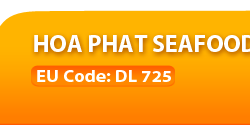|
Letter: Pangasius crucial to U.S.-Vietnam trade
Date: Wed 30/11/2011
(SeafoodSource) The following is a letter to the editor submitted by John Connelly, president of the National Fisheries Institute in McLean, Va., and published by the Wall Street Journal on Wednesday. On his visit to Vietnam today, U.S. Secretary of Agriculture Tom Vilsack will work to open that country for U.S. exports. Mr. Vilsack's trip is prompted in part by the Trans-Pacific Partnership trade negotiations intended to ensure U.S. products get a fair shake on government regulation and oversight. But that fairness must start at haome.
One of the more pressing challenges in U.S.-Vietnam trade concerns American protectionism against a fish, the pangasius, which accounts for 2 percent of Vietnam's GDP. Because it is similar in taste and texture to domestic catfish, the pangasius has aroused the ire of American catfish farmers who have persuaded Congress to erect stiff nontariff barriers to pangasius imports.
In 2002, the domestic lobby convinced Congress to bar importers from marketing the pangasius as a catfish. That didn't dissuade American consumers. So now American producers want Mr. Vilsack's Agriculture Department to call the pangasius a catfish again, so that they can inflict on it a new safety inspection regime that applies only to catfish.
The move is bad science. The pangasius and domestic catfish are two completely different species, and there is no evidence that either fish carries any more of a food safety risk. There is no reason either fish should be subject to a different inspection regime.
And this is no way to treat an increasingly important friend. The U.S. Department of Agriculture (USDA) says Vietnam is "quickly becoming one of the United States' largest markets for agricultural exports" and notes development of a "thriving agricultural partnership." That trade supports more than 28,000 jobs in the U.S.
Placing unjustified barriers to trade on Vietnamese products, as Mr. Vilsack will do if he designates the pangasius a catfish under the protectionist rules, would undermine this friendship. It also would undermine President Obama's broader outreach to Southeast Asia, especially on the economic front.
By raising the prospect of Vietnamese retaliation, a pangasius ban would jeopardize the strategic priorities of President Obama's National Export Initiative. For this reason, trade groups representing soybeans, beef, milk, pork, dairy, turkey, eggs and grains have warned Mr. Vilsack the proposed catfish regulation will hurt farmers. The groups wrote, "[T]he U.S. … continues to successfully remove non-science-based and other unjustifiable barriers that negatively affect U.S. agricultural exports. Implementing such a rule has the potential to weaken future U.S. efforts if it is perceived as engaging in the same type of activity."
At this pivotal moment when Mr. Obama should be pitching free trade to the world, "do as I say, not as I do" is a particularly weak message. The pangasius fish is just one case, but other markets will be watching how the U.S. treats its friends.
Đinh Hà
| 


















